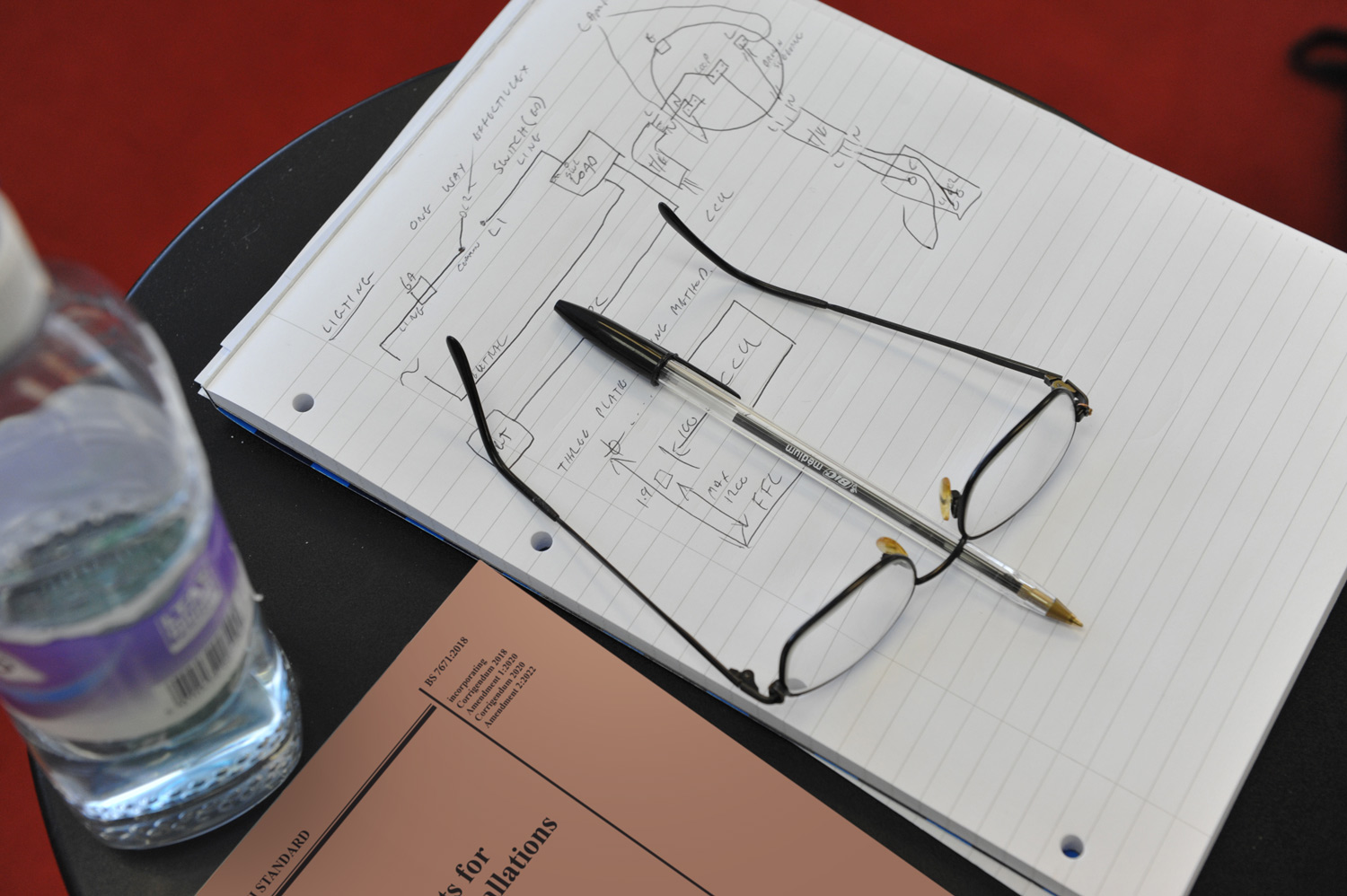Federation of Master Builders (FMB) report the average salary for electricians is £47,265
Many people considering learning a vocational qualification are often put off because it is generally perceived that the only route to a well-paid career is via a university degree. However, recent research by the Federation of Master Builders (FMB), which shows pay grades for manual jobs, proves that this isn’t necessarily the case.
Why it makes sense to get a trade versus going to university
The study shows the pay grades for both tradespeople and university graduates and reports that in general terms electricians and plumbers earn more than pharmacists, whilst roofers and bricklayers earn more than architects.
Research by the FMB also shows that construction apprentices will typically earn thousands of pounds more year-on-year than many of their university educated counterparts.
The research aims to prove that there are many career paths a school leaver can take without a degree and shatters the myth that apprenticeships have very little formal progression.
Money talks!
FMB’s chief executive Brian Berry said: “Money talks, and when it comes to annual salaries, a career in construction trumps many university graduate roles.”
“The average university graduate earns £32,000 a year whereas your average brickie or roofer is earning £42,000 a year across the UK. Indeed, in London, a bricklayer is commanding wages of up to £90,000 a year.”
“Pursuing a career in construction is therefore becoming an increasingly savvy move. University students graduate with an average £50,800 of debt, according to The Institute for Fiscal Studies, while apprentices pass the finish line completely debt-free.”
“Not only that, apprentices earn while they learn, taking home around £17,000 a year. We are therefore calling on all parents, teachers and young people, who too often favour academic education, to give a career in construction serious consideration.”
Small building firms across the UK were asked what they paid their tradespeople and the average annual salaries were as follows:
- Site managers – £51,266
- Plumbers – £48,675
- Supervisors – £48,407
- Electricians – £47,265
- Civil engineering operatives – £44,253
- Steel fixers – £44,174
- Roofers – £42,303
- Bricklayers – £42,034
- Carpenters and joiners – £41,413
- Plasterers – £41,045
- Scaffolders – £40,942
- Floorers – £39,131
- Plant operatives – £38,409
- Painters and decorators – £34,587
- General construction operatives – £32,392
The report also shows that university graduates were found to earn the following average annual salaries:
- Pharmacists – £42,252
- Dental practitioners – £40,268
- Architects – £38,228
- Teachers – £37,805
- Chartered and certified accountants – £37,748
- Midwives – £36,188
- Veterinarians – £36,446
- Physiotherapists – £32,065
- Nurses – £31,867
Mr Berry added: “The construction industry is in the midst of an acute skills crisis and we are in dire need of more young people, including women and ethnic minorities, to join us.”
“Our latest research shows that more than two-thirds of construction SMEs are struggling to hire bricklayers and 63 per cent are having problems hiring carpenters. This is a stark reminder of how the government’s housing targets could be scuppered by a lack of skilled workers.”
“The FMB is committed to working to improve the quality and quantity of apprenticeships because the only way we will build a sustainable skills base is by training more young people, and to a high standard.”
We’re pleased to see that this report shows that the average salary for electricians is higher than that reported by the ONS which is where the data for our 2018 Trades Salary Survey came from. This is only good news for anyone thinking of entering the industry and shows that it pays to enter the construction industry.
Of course, salary ranges will depend on a number of factors including, experience, qualifications, location and job responsibility etc and the starting salary for an entry level electrician will inevitably be lower.
If you are interested in an electrical training course, please visit our Course Finder page or speak to one of our course advisors on 01293 529777.
Source: www.irishnews.com




















